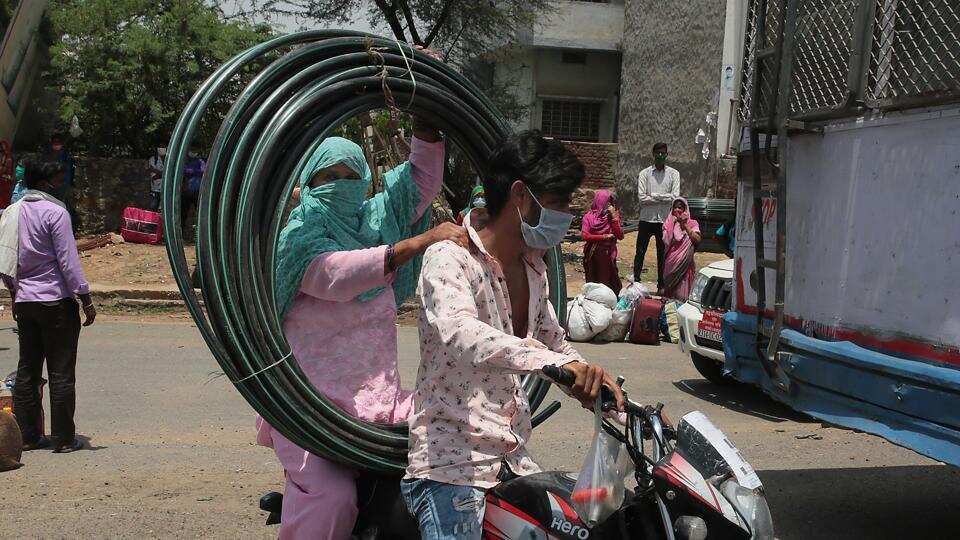
They are dynamic, they are ingenious, they are open-minded and above all, they are handy to perform any given task. The 12 under training (UT) officers of the 2018 batch of Indian Administrative Service (IAS) are playing a significant role in fighting the war against coronavirus in 10 districts of Rajasthan.
These officers under training are not in news. They are not supposed to be. They must work behind the scenes to tackle the public health crisis. But the district collectors where they are working are happy with their performance even after their probation period got over on April 24.
Sriganganagar collector Shiv Prasad M Nakate said this crisis is something that no one has faced before. “Many of the officers under training are at the frontline, fighting the pandemic. As the most of officers are from engineering background they have been assigned some difficult but important tasks such as data analysis, contact tracing, management of camps and quarantine facilities, logistics and interstate coordination for migrant labours,” he said.
Sriganganagar is a coronavirus-free district.
Nakate said that the young and energetic officers are always a great human resource in such a pandemic. “They are very handy in every situation. The trainee here has worked as an SDO and now he is dealing with the grievances. He performed as an asset in our war room as well,” he said.
Abhishek Surana, who got the 10th rank in 2017 civil services examination, is posted as sub-divisional magistrate (SDM) in Bajju in Bikaner. He said, “There are certain disasters that need an immediate response, such as floods and earthquakes. But a pandemic require a standardised response. We learnt how to make relief camps, ensure sanitation and ensure no discrimination happens. These are the best practices needed to help reduce infections.”
“We can extend these to tackle the present migrant worker crisis,” he added.
The role of assistant collectors under training depends on their supervisors – the district collectors (DCs). This is the time they spend learning about the different departments they will be in charge of as DCs, said an official.
In this pandemic, they are being used to collect data and help the administration. They have no legal powers. So their roles are ancillary – they can effectively act as helping hands as long as their training is not hampered, he added.
Jodhpur collector Prakash Rajpurohit said what can be better than a practical learning and that these officers achieved a lot in this pandemic situation. “The officers here were very helpful in tasks like contact tracing, enforcement of laws, maintaining supplies and other assignments. They developed specific software to perform several operations smoothly,” he said.
According to the order issued by the department of personal, officers under training deputed as assistant collectors in their respective districts are Atul Prakash (Kota), Abhishek Surana (Bikaner), Deshal Dan (Pali), Utsah Choudhary and Shilpa Singh (Jaipur), T Shubhmangala (Udaipur), Ram Prakash (Banswara), Mohammad Juained (Sriganganagar), Mayank Manish and Aparna Gupta (Jodhpur), Nithya K (Ajmer) and Abhishek Khanna (Alwar).
Interestingly, two married couples are also there in this team who are posted in Jaipur and Jodhpur. Utsah Choudhary (mechanical engineer) working as assistant collector in Jaipur said: “It happens once in a life time and we learnt how to implement the Epidemic Act, the Disaster Management Act, and other government directives so that preventive actions are enforced will be important.”
He said normally the officers would not have gone into an in-depth study of these acts. “But this year is different and fortunately during our studies at Lal Bahadur Shastri National Academy of Administration (LBSNAA) in Mussoorie, our batch attended a health module based on encephalitis (an inflammation of the brain and a viral infection) conducted by senior IAS Arti Ahuja, additional secretary of health ministry. That was a great help.”
Sardar Vallabhbhai Patel had described the Indian Administrative Service as the “steel frame” upon which the rest of the bureaucracy would rest and the much-needed transformation is rolling in due to dynamic and dedicated IAS officers who are bringing in fresher ideas.